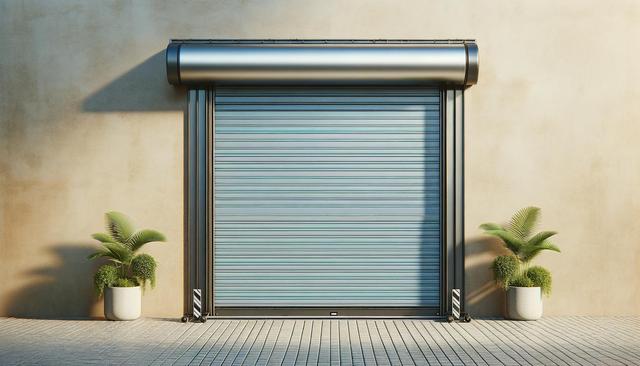Affordable Protection: Finding the Perfect Budget Roll-Up Door for Your Needs
Securing your property with a reliable roll-up door doesn’t have to drain your finances. In this guide, we explore types of cost-effective & durable roll-up doors.

Understanding the Different Types of Roller Doors
When choosing a protective barrier for your home or business, understanding the various types of roller doors available is essential. These doors come in multiple styles, materials, and mechanisms to suit different needs and budgets. Common types include manual and motorized options, each offering distinct advantages depending on the intended use. For example, residential roll up garage doors are often equipped with smooth-operating mechanisms for ease of daily access, while commercial roll up doors are designed with heavy-duty materials to withstand frequent use and harsh conditions.
Key types of roller doors include:
- Steel Roll Up Doors – Durable and commonly used in commercial and industrial settings.
- Aluminum Roller Doors – Lightweight and corrosion-resistant, ideal for coastal or humid environments.
- Insulated Roll Up Doors – Provide energy efficiency and noise reduction.
- Perforated or Grille Roll Gates – Useful for storefronts that need visibility and ventilation.
Understanding these types can help you make an informed decision, especially when working within constraints of a budget roll up door solution.
Benefits of Choosing Budget Roll Up Doors
Budget roll up doors offer a practical solution for property owners who require dependable protection without high upfront costs. These doors are engineered to provide security and functionality, making them a popular choice for garages, workshops, storage units, and small businesses. Despite the cost savings, many of these doors still meet industry standards for durability and performance.
Some notable advantages include:
- Cost-effective installation and maintenance.
- Compact design, saving space in tight areas.
- Ease of operation with options for manual or automatic opening.
- Variety of sizes including the commonly used 8 foot roll up door.
Whether you are installing a garage shutter door at home or searching for an overhead roll up door for your commercial facility, budget-friendly options are available that maintain quality without compromising on safety or design.
Comparing Residential and Commercial Roll Up Doors
Both residential and commercial roll up doors serve the same primary function—providing security and access control—but they are constructed with different priorities in mind. Residential roll up garage doors are typically built with aesthetics and convenience in mind. They come in a variety of designs and finishes to complement the overall look of a home. In contrast, commercial roll up doors emphasize strength and durability, often constructed from thicker steel and equipped with advanced locking mechanisms.
When comparing the two, consider the following:
- Frequency of use – commercial doors are designed for higher traffic.
- Material strength – commercial models often use heavier gauges of steel.
- Insulation needs – both can be insulated, but commercial uses may require higher ratings.
- Size options – commercial needs may include wider or taller doors like an 8 foot roll up door.
Choosing the right type depends on your specific use case and budget, but both types offer reliable protection when selected thoughtfully.
Choosing the Right Size and Material for Your Needs
Size and material are two of the most critical factors when selecting a roll up garage door. The right dimensions ensure that the door fits securely and functions smoothly, while the appropriate material enhances durability and performance. Standard sizes like the 8 foot roll up door are widely used for both residential and small commercial applications, but custom sizes are also available to meet unique requirements.
Materials commonly used include:
- Galvanized steel – known for strength and resistance to corrosion.
- Aluminum – lightweight and suitable for less demanding environments.
- Polycarbonate – often used for transparent or semi-transparent roll gates.
Each material has its own advantages. For example, steel is ideal for high-security needs, while aluminum is easier to handle and install. Consider the environment, frequency of use, and maintenance capacity when choosing the right material for your budget roll up door.
Installation and Maintenance Considerations
Proper installation and routine maintenance are essential to getting the most value out of your roller doors. While many budget roll up doors are designed for easy setup, professional installation is often recommended to ensure safety and optimal performance. This is especially true for more complex systems like overhead roll up doors or electric models.
Maintenance tasks to keep in mind include:
- Lubricating moving parts to prevent rust and wear.
- Inspecting for dents, cracks, or misalignment.
- Testing lock mechanisms and automatic functions regularly.
- Cleaning slats and tracks to avoid debris buildup.
Staying on top of these tasks can extend the life of your door and reduce the need for costly repairs. Whether you’re managing a commercial roll up door or a residential garage shutter door, a bit of preventive care goes a long way in preserving both function and appearance.
Conclusion: Smart Security Without the High Price Tag
Roll up garage doors, whether for residential or commercial use, offer a practical combination of security, convenience, and space-saving design. With the wide variety of types of roller doors available today, finding a cost-effective solution that meets your needs is more achievable than ever. By focusing on essential features, appropriate materials, and regular maintenance, you can enjoy the benefits of roll gates, garage shutter doors, and overhead roll up doors without exceeding your budget. Whether you’re installing a small 8 foot roll up door at home or securing a storefront with a heavy-duty commercial roll up door, the right choice can provide lasting value and peace of mind.